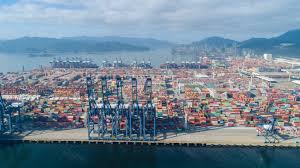
Geoeconomic fragmentation affects ASEAN+3 and the euro area, altering trade patterns and financial vulnerabilities. ASEAN benefits, while Europe faces increased distant exposures, prompting need for strategic adaptation and regional support.
Geoeconomic fragmentation is reshaping the international economic landscape, particularly impacting trade patterns and financial vulnerabilities within the ASEAN+3 and euro area regions. As geopolitical tensions rise, countries are increasingly adopting inward-focused economic strategies aimed at bolstering national security. This paper, a collaborative effort by the ASEAN+3 Macroeconomic Research Office (AMRO) and the European Stability Mechanism (ESM), delves into how these dynamics are influencing trade and capital flows in these highly open economies.
In the ASEAN+3 region, while overall trade values have experienced stabilization, significant shifts in trade patterns have emerged. Notably, China’s export activities have been adversely affected by ongoing trade tensions with the United States. In contrast, ASEAN countries have adeptly positioned themselves as regional connectors, capitalizing on changing global dynamics to enhance their export advantages. For the euro area, there has been a marked increase in financial exposure to geopolitically distant nations over the last two decades, exposing the region to vulnerabilities as these financial flows become more susceptible to geopolitical risks.
Given these developments, it is essential for regional financing mechanisms to be proactive in aiding member countries in navigating the uncertainties that arise from geoeconomic fragmentation. Adapting financial tools and strategies in line with the unique challenges posed by these conditions will be vital. Such measures will empower both ASEAN+3 and the euro area to effectively manage the complexities of global trade and finance, ensuring they maintain stability and foster growth despite the overarching geopolitical challenges. Thus, a nuanced approach to regional cooperation and strategic adaptation will be crucial for resilience in a fragmenting economic environment.
Source: Thailand Business News
Share: